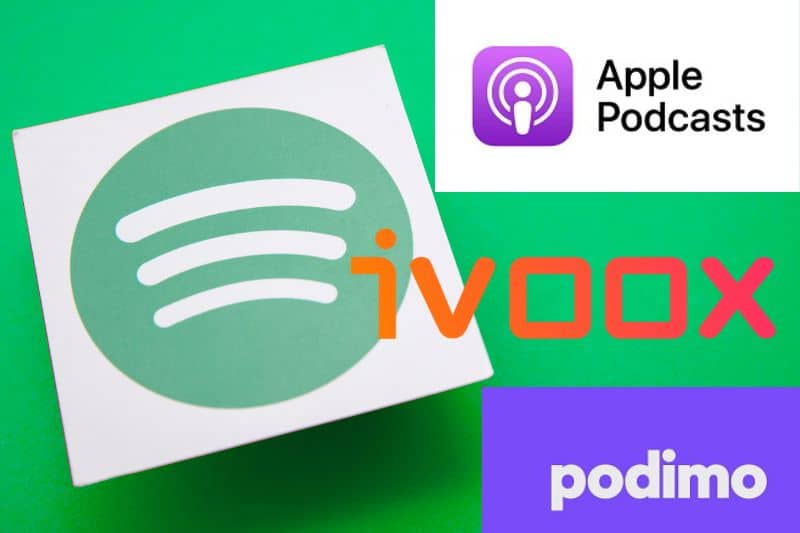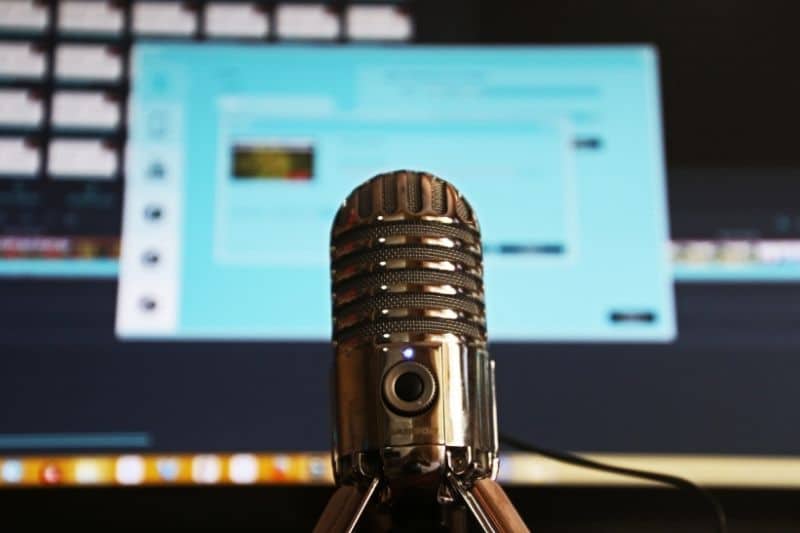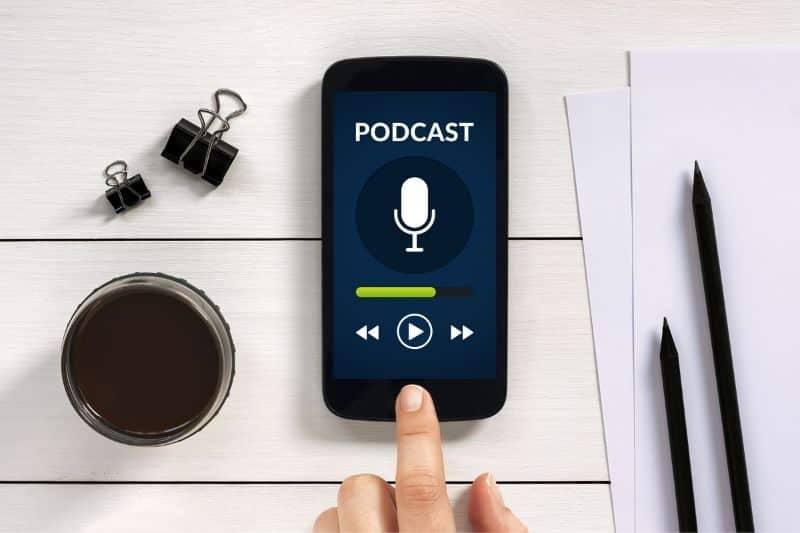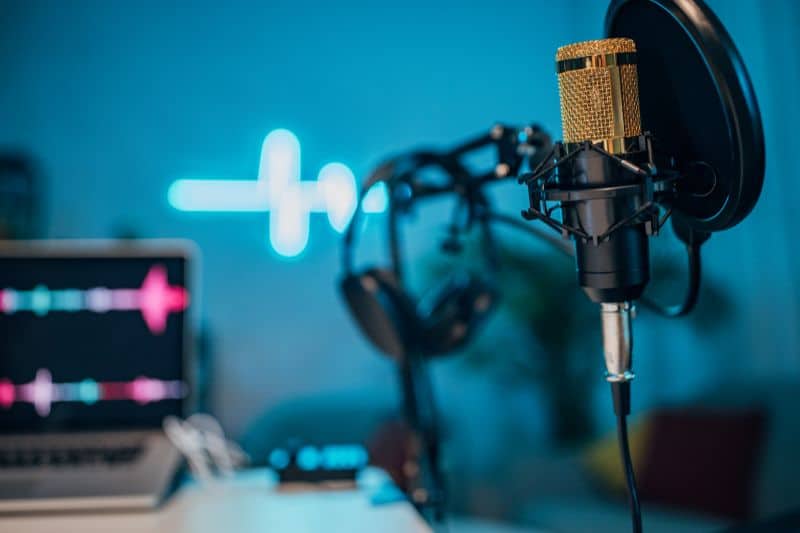Make SEO for podcasts is the best way to reach new audiences on a sustained basis over time. Create a podcastwriting the script, recording and editing the episodes, producing to get the best guests, etc., is a lot of work, but it's no use if we don't get listeners or if we stagnate.
Fortunately, the SEO for podcasts is your ally once you have fulfilled all those basics. I mean, if your programme is bad, people are not going to listen to it, no matter how hard you work on it. SEO.
However, if you do something worthwhile, gaining new subscribers it will only be a matter of time. As long as you do what needs to be done to find yourself. Or, if you don't want to do SEOyou do paid.
I already told you about all the previous steps in my article on how to make a podcast for business. Now let's move on to the next level. The podcast it already exists and it is good, how do I position it?
Although, to be honest, it is always better to take into account some of the following SEO aspects from the beginning, starting with the title of the show. But hey, we can always make a rebranding if what we have done so far does not work.
Where to position a podcast?

Everywhere. The first thing we have to bear in mind when we make SEO for podcasts, is that each platform has its own algorithm. The algorithm does not work in the same way for the Spotifythe iVooxthe Podimo or that of Apple Podcaststo name the most popular platforms.
Even so, there are some general rules, which is what we are going to talk about today.
Nowadays, the most common is to have as a base iVoox o Spotify for Podcasterswhere the main listener communities. From there, we can communicate with the rest of the platforms easily. Of course, the titles, descriptions and tags that we place in this first platform, is what will migrate to the others.
That is to say, we cannot adapt the content to each platform. Unless we pay each platform separately (which doesn't make much sense in most cases).
In addition to the SEO on podcast platformsWe should also not forget the SEO on Google or other search engines. People also search for podcasts on GoogleWe therefore also have to think in terms of Traditional SEO.
The work of organic positioning for podcasts does not end here, but also reaches out to the social media. The SEO on TikTokwhere most successful podcasts post short clips of their key moments from each programme is crucial. Not for nothing, TikTok is the leading search engine for young people..
To help us, it recently appeared TikTok Keywords Insighsa tool that will help you to select the main keywords and to better understand its algorithm.
On the other hand, the SEO on YouTube is also essential. Many podcasts are also recorded on video and are seen in YouTube (Spotify also allows you to watch video podcasts). Work on this aspect, will multiply the number of subscribers we can achieve.
How to do SEO in a podcast?

In this article on SEO for podcasts I will not go into the optimisations for Google, TikTok o YouTubebecause there is already other content on this blog about it, and I'm going to focus on the optimisation within the podcast platform.
There are several key elements that we have to optimise, just like in any article or website. On the one hand, there are the titlesboth the podcast title as well as the episodes. Both types of title count.
On the other hand, the descriptionwhich would be halfway between an article's lead and its meta-description. Finally, the cataloguing in the system of categories and tags of each platform will also be crucial. There is a description of both the podcast and each episode.
These would be the metadata which take into account the search engines.
Of course, the content of the podcast itself will also be relevant. Platforms such as iVoox automatically generate the content below the episode, with a transcription not too fine, but which also helps its algorithm to find keywords.
Finally, the virality of content and the user behaviour always helps. If users stay until the end, it will be much easier for the platform to put us in a more relevant place.
Create an SEO title for the podcast

The first difference we find with respect to a SEO content strategy traditional has to do with the title. Here, a descriptive title of the content. In fact, it is not even recommended.
The podcast title (of the episodes is another matter) has to be unique and catchy. We are talking about brandingbut also to make things easy for search engines.
So avoid generic titles with common words. If you are going to do a marketing podcast, never call it "digital marketing" or if you are going to do an investment podcast "investment tips".
Also do not use unique spellings o special symbols. You may think it's a very good idea to call it an investment council, but no one will be able to find it afterwards.
You need a title that is not too longpeople's minds, that it will stick in their heads, that it is catchybut at the same time unique for not having to compete with other podcasts that are called the same.
"Investing and living" could be an example of a good name. The general theme of the podcast, investment, appears in the title, but it also allows you to talk about other aspects such as personal growth or productivity. It doesn't pigeonhole, it rhymes and it is easy to remember, so it would be an option that works.
Take care with the description of the programme

This aspect is completely irrelevant to users. Let's face it, nobody reads the description of a podcast. However, it is super relevant when we do SEO for podcasts.
In this case, we have to be very brief, as there is an important limitation of characters. Basically, we have to include three elements:
1. The abbreviation of the programme (if it exists, it is not mandatory).
2. The name(s) of the presenter(s).
3. The main topics to be covered in the programme.
In point 3 it is essential to have the main keyword (main theme) and a relevant secondary keyword.
If I were to present "Invest and Live" I could create such a description:
Pablo Herrera, investment expert and writer of How to Invest Today, offers tips on stock market investing, productivity and personal growth with leading economists. Learn how to make your money work for you.
Fortunately, this is only a fictitious example and I am not an investment expert, because I would find it a very boring programme. But the important thing is that it would show the search engines who I am (Pablo Herrera), what I have previously done (write How to invest today), what I'm going to talk about (stock market investment, productivity, personal growth and profitability), and with whom (economists) in a few characters.
Beyond one's own podcast platform search enginemost of the search engines (including Google) have a section podcast specificIt will help us to reach out and gain new listeners.
Normally, in the programme description there will also be a section for link to the podcast's social networks. Make the most of it.
Writing episode titles

The episode titles are part of the dynamics of the podcast titlebut going into greater depth.
Here we must be able to respond to the search intention by doing descriptive titles but at the same time interesting for the user. A bit like when we do any other SEO contentbut with a difference.
First of all, we are dealing with an episode, so we need to add season and the episode number. For example, the first episode of the podcast will be 1×01 and the 30th episode of the fifth season will be 5×30.
This gives you programme structure and allows the user to find their way around. You may have reached an advanced episode, but if you like what you hear, you may find it easier to start at the beginning and listen in order.
Then comes the title itself. Following the example of "Investing and living", we could imagine: 3×03 Where to invest in renewable energies?
The name of the guest is then added. In this case, my SEO partner Bego Ontiveroshas worked in the energy sector, so I will use it as an example. The title would look like:
3×03 - Where to invest in renewable energies with Bego Ontiveros | Investing and Living
It is clear and concise and allows you to find programmes by guests. There are many people who follow certain experts and this can be a good opportunity to widening the audience.
If we had titled it "the short, medium and long-term profitability of solar, wind, geothermal and tidal energy", for example, we would have a title that would be too long and would have been too difficult to read. would not work as well with respect to search intent.
Writing the episode description

Again, as with the description of the podcastwe are dealing with a key metadata which, in this case, should be extended as far as possible.
Even so, there is no need to very long descriptions. Ideally, no more than three or four sentences should be added. Similarly, you should prioritising information. In other words, put the most important things first, and then go on to describe the episode.
Names of guests (especially if there is more than one and they don't fit in the title), main keywords and secondary and, as in any meta-description of an article, that there is a clear connection to the titleThe information should be expanded and not repeated.
Having to be a short descriptionIt is important that there are no filler words. Stick to what is important and the most relevant keywords. It is also not about making spoilers or transcribing, I already told you that the platforms themselves transcribe part of the content.
It simply counts what are you going to talk about more specifically and with whom.
If you have different sections or interviews, also a minute can be addedso that users can search directly for the content they are interested in.
Customise the podcast homepage

Within the platform, we will have a main page where we will have more information about our programme. This includes aspects such as SEO for podcastsbut also of creativity and aesthetics.
We have already discussed the relationship between web design and SEO and we need to re-emphasise that. A satisfying aesthetic experience will make it more likely that the listener will interact with our content and listen to us, generating a best branding.
The customisation options are very platform-dependent. For example, in Spotify there are greater options than in iVoox.
Be that as it may, the main image must be of high qualityThe logo must be square and include the name and logo of the podcast. If we record video, don't forget include the logo both in the full programme and in the clips for TikTok.
Add the categories and correct labels on the homepage (also in the episodes, it will be key in the positioning) and also the social networks and your website, if you have one.
This way, when search engines crawl your RSS feed will be able to extract the search terms we want and relate them to our website and our social networks, increasing the number of hits. indexing possibilities.
Taking care of categories and labels

Depending on the podcast platform we use we will have some specific categories available. These categories are part of a thesaurus with which we can define both our programme and episodes.
For example, our Investing and Living programme could be part of the general categories of Everyday Economics, Entrepreneurship or Business and Technology of iVoox. It is necessary to choose one and be consistent for the episodes.
Even so, we may do a special that makes more sense in Coaching o InterviewIt can be changed, but the ideal is to maintaining thematic coherence.
The same goes for the episode labels. However, there is a difference here that makes it more complex. On the labels we are totally free to put the one we wantIf you do not select a pre-existing label, you do not have to select a pre-existing label.
Thus, it is important to maintain coherence and to create our own tag thesaurus. It would also be useful to make a small keyword research and check what labels our competitors use and are more successful on the platform.
In this way, it will be much easier to get it right, and to help us to position the episodes. There is a limitation of the number of labels possible (there are five on iVoox), so select carefully.
This is what it is for prepare the thesaurus in advance. In this way we avoid using synonyms and, for example, we always label with "investment" and not with "invest" or with "Stock Exchange" and not with "IBEX", giving room for others relevant labels.
Create a podcast trailer

Something that can help us a lot and that is also shown on the main page of the podcast is the trailer. In this case, we are not expressly talking about SEO for podcastsas it is not in itself a positioning factor.
Even so, platforms such as Spotify allow mark content as a trailer (it can also be an episode) which is likely to be the first thing users hear when they land on your podcast page on the platform.
It's the first thing that can be clicked on, so once SEO has done its job, everything is played on this card.
Take care of it and make it attractive and you will have a much better chance of the audience listening to your content. In addition, the podcast trailer is perfect for use in social networks or even in your website.
The Recommended trailer length is about 30 seconds.. Think of it as a TikTok clipSomething quick and to the point, funny or emotional, to create anticipation for what you are going to present.
Setting up a website for the podcast

Finally, if you want your podcast to be a success, consider creating a website. Alternatively, a sub-section on your personal or business website can also be useful.
As a website, you can use the classic SEO strategyYou will be able to add a lot of additional content and even sell merchandise if it is very successful. You will be able to add a lot of additional content and even sell merch if you are very successful or getting sponsors.
In short, it offers more options for you to be found. If you use a WordPressyou can seamlessly integrate Spotify for Podcastersso you don't need any programming knowledge.
In any case, whether you have a website or not, do not forget to monitoring analytics of all the platforms on which you publish your programme, your networks and your website. It will allow you to discover some very interesting facts in the approach to content.
You will know who is listening to you, what their demographics are, whether they finish the episode or drop out in the middle, etc., and you will be able to get closer to your target audience.
If you want to working on the SEO of your podcastContact us. We can help you.


